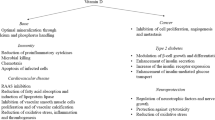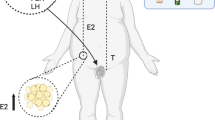Abstract
Objective: Dietary supplements of the adrernocertical hormone dehydroepiandrosterone (DHEA) are widely taken in the hope of staving off the aging process. Potential dangers have not been fully researched, particularly evidence of a correlation between increased serum concentrations of DHEA and higher breast cancer risk in postmenopausal women.
Design: The review examines reports of clinical, epidemiological experimental studies for evidence that DHEA may be a factor in promoting the growth of mammary cancer. Biological mechanisms which might be involved are identified.
Results: DHEA is reported to inhibit the growth of human mammary cancer cells in vitro and also the growth of chemically-induced mammary cancer in rats. However, growth inhibition occurs only in the presence of high oestrogen concentrations, and growth stimulation occurs in both models in the presence of a low-level oestrogen milieu. Epidemiological studies report a positive correlation between higher serum concentrations of DHEA and increased breast cancer risk in the case of postmenopausal but not premenopausal women.
Postulated mechanisms include a direct effect on mammary cells by androgenic metabolites of DHEA or an indirect effect by an increase in bioavailable oestrogen levels. The increased serum concentration of free insulin-like growth factor 1 which follows prolonged DHEA intake may also have a role by stimulating oestrogen receptor activity in breast tissue.
Conclusion: Late promotion of breast cancer in postmenopausal women may be stimulated by prolonged intake of DHEA, and the risk may be increased by the endocrine abnormality associated with pre-existing abdominal obesity. Caution is advised in the use of dietary supplements of DHEA particularly by obese postmenopausal women.
Similar content being viewed by others
Author information
Authors and Affiliations
Rights and permissions
About this article
Cite this article
Stoll, B. Dietary supplements of dehydroepiandrosterone in relation to breast cancer risk. Eur J Clin Nutr 53, 771–775 (1999). https://doi.org/10.1038/sj.ejcn.1600889
Received:
Revised:
Accepted:
Published:
Issue Date:
DOI: https://doi.org/10.1038/sj.ejcn.1600889
- Springer Nature Limited




